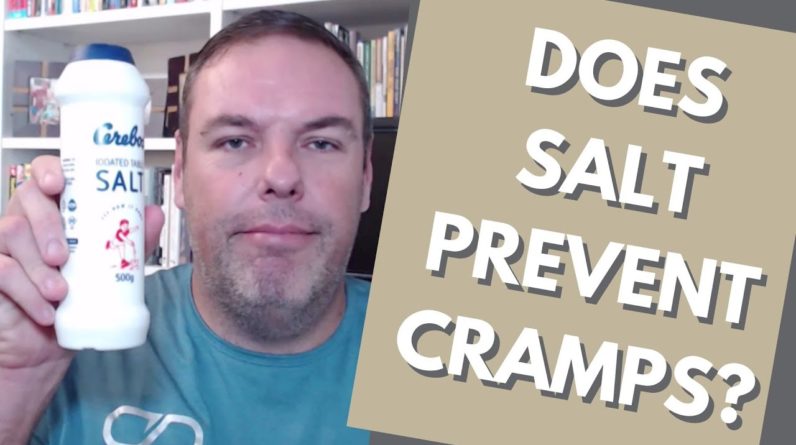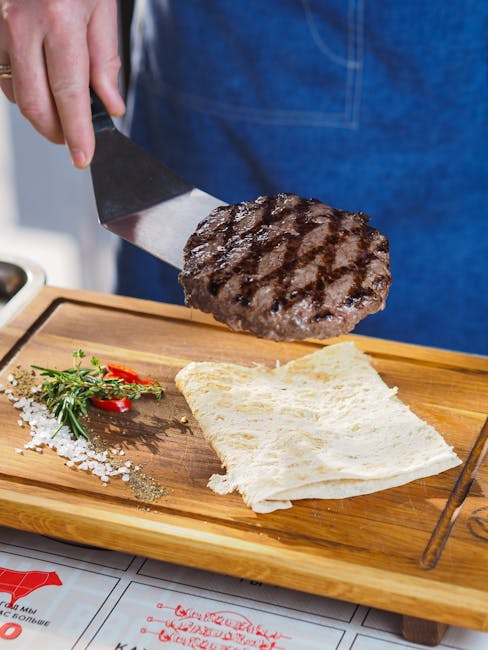
Welcom back on to the next video. Today we are talking about salt. Yep. Does salt prevent leg cramps? This is my general table salt. But you know what I'm saying? You've seen it at races people taking handfuls
of the stuff and shoving it into their face. Does it really help? That's what we're going to be talking about
on today's video. We're joined by our coach Lindsay Parry, and
we're going to be talking about table salt.
Should you be taking handfuls on a run? Does it really help? Does it actually cause cramps? We'll find out on today's video. Don't forget, if you haven't subscribed, and
you don't want to miss any of our videos, all you need to do is click on the button
that's on the screen right now. And be sure to head over to our website CoachParry.com,
that's where we help you become fitter, faster and stronger. And every single week we put these videos
out, we've got podcasts and you don't want to miss any of them. That's CoachParry.com. It's the million Dollar question. Every time we talk about cramping, I say that. Lindsay, if we had the cure, we would be gazillionaires. Yeah, absolutely. As it is that is a part of the nutrition industry
that does make quite a lot of money because there are people that are cramping because
of electrolyte balance, but we know that that's not the primary cause of cramping.
So, those few people that it does help are
enough to sustain that entire industry because they do have enough cases with it does work
that everybody wants in on the action. Well, let's talk you mentioned electrolytes. Salts, first of all, is that a major factor
in cramping? Should we be having more should we be having
less what's the deal with salt and leg cramps? So sodium in particular is a very interesting
one because if you have very low stores of sodium, it can lead to cramping. Although things like magnesium and calcium
shortages are probably worse than having a sodium shortage but yes, it absolutely can.
The reason why you don't just want take a
blanket approach and start smashing salt tablets is because too much sodium can also lead to
cramping. So I think in very long, ultra distance and
multi day races, it is important to be doing some sodium replacement. But that's the sort of thing that I'd probably
try and get access to some sort of lab testing to figure out what is the right amount of
sodium and am I taking in enough sodium through energy drinks, gels, the bars, tablets, etc,
that I take because all of those things do tend to have some sodium in them. And so for most people, as long as we are
practicing good nutrition, you are going to be replacing quite a lot of the sodium that
you are losing and that's why for most people, that is not the cause of cramping. For most people, cramping is caused by fatigue,
there is a delay in the signaling due to fatigue in telling muscles when to contract and when
to relax. And typically we always have two muscles working
with each other. And if we look at the quads and hamstrings,
that's an example.
So when your quadriceps contract, you want
your hamstrings to be nice and relaxed. And when your hamstrings need to contract,
you want your quadriceps to be nice and relaxed. And with this, this delayed signaling and
fatigue that happens and there comes a point where both muscles are contracting at the
same time. Or let's say that the quad needs to now contract
because you're about to hit the ground but the hamstring hasn't finished contracting
it and the quadriceps contracts too quickly.

Boom! We have full involuntary muscle contraction. That is what a cramp is. Lindsey, you'll see it quite often at running
events guys standing with bottles of table salt on the side of the road and then the
odd runner running past, grabbing a handful and wolfing it down. I can't think of anything worse, does that
actually help? Probably not with cramping to be fair, but
the one area where having a little bit too much salt can be handy is that it can drive
to your thirst. And so, in endurance event, if we are losing
loads of of electrolytes and through our sweat and we are taking in tons of water at the
same time and not taking in energy drinks and enough of all the other good things we
can actually start to dilute our sodium concentrations within our our bodies which number one, then
makes you feel not thirsty.
While the dehydration isn't typically a medical
condition, it's probably not great to just go on for hours without drinking. That's the one on the one hand. On the second hand, far more serious of course,
is that if, even though you're not thirsty, you just keep pumping in fixed amounts of
fluids, and that sodium level continues to drop, then we can get into very dangerous
territory with water intoxication or hyponatremia. And that rapidly can become a medical condition. So certainly some salt and some salty foods
and some salty supplements are a good idea. I mean, first fistfuls of salt that was a
couldn't possibly think of anything worse. Lindsay let's sort of look at if somebody
is prone to cramping and is looking for solutions. We've spoken about salt today. What are some of the other things that they
can look at that could help prevent their cramps? So look, again, as we've spoken in previous
videos, sometimes there's preventative stuff and stuff that we can do in a situation to
help.
Okay, so we know that there are probably about
roughly a third of the people who cramp are cramping because of nutritional imbalances,
which then typically show themselves that there's electrolyte imbalances. So certainly if you are a cramper, it is definitely
worth trying some of those electrolyte supplements that are sold, even something like rehydrate
or similar, taken 30kms into an ultra and then every 30km on. In a marathon is probably less of an issue,
but maybe you'd want to take it halfway in a marathon. You can try that, Okay? If it works, fantastic because then you've
got your solution right there. Then there are some products that are now
on the market which can assist stopping cramping, because they force the motor neurons to slow
down.
So, they actually bind onto those motor neuron
sites and slow them down. So that we can get back to this thing of the
agonist and antagonist working nicely together because we improve the coordination of that
contracting and relaxing and those products typically have capsicum or you know, the chili
extract in them. And pickle juice is another one that can can
do exactly the same thing. So, you can try that and that will often stop
the cramp dead during the race. But of course, we want to get to a point where
we aren't getting debilitating cramps during a race. And the way we do that, is with improved and
better training for the event that you're training for. Incorporating strength training as part of
your routine going into the race, and teaching yourself to run/walk, and use those walk breaks
to reduce the fatigue, or delay the onset of the fatigue in the race, and therefore
reduce the incidence of cramp.
Thanks for joining us on this video. Don't forget, if you don't want to miss any
of these videos that we put out, hit the subscribe button over here. You can catch our latest video over here and
one of our most popular is over here. And also if you want to shave 10 minutes off
your PB. All you need to do is download our free strength
training program. You can get that right here. Transcribed by https://otter.ai.







